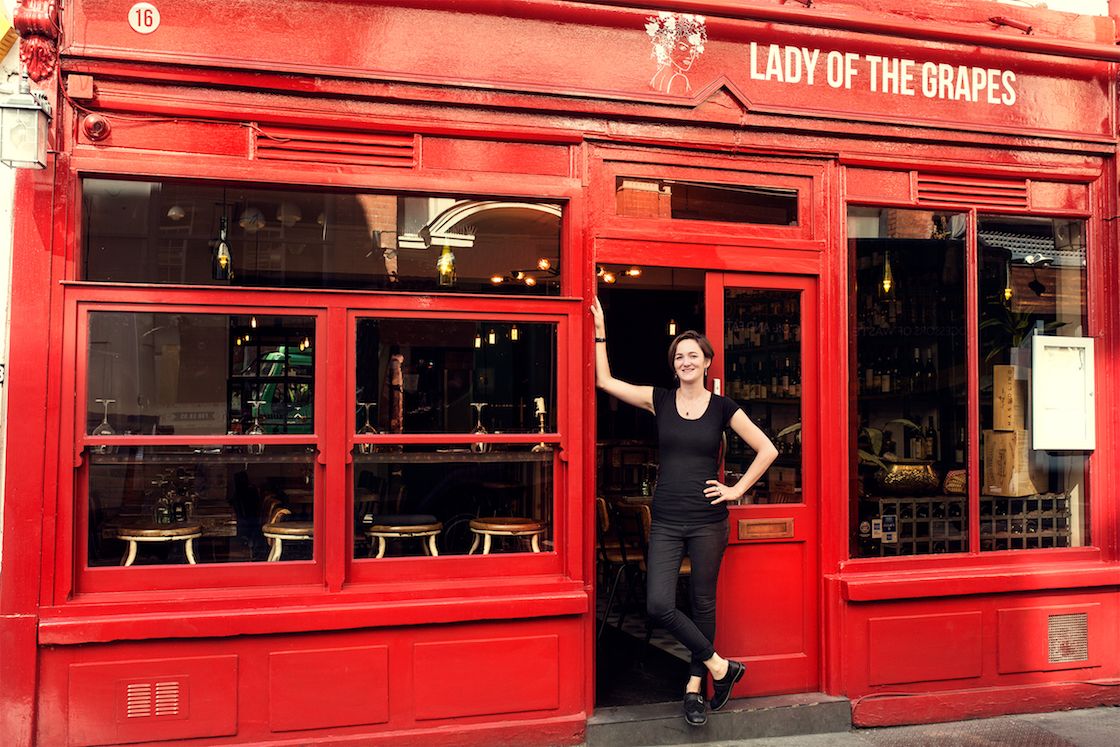70% of the wines listed at Lady of the Grapes are from women winemakers, and all the wines are organic, at the very least. Bryon has also been highly imaginative with promoting events such as International Women’s Day and doing tie-ups with wine importers.
When did you set up Lady of the Grapes and what are you trying to achieve?
We opened Lady of the Grapes seven months ago but it took many years to conceptualise. With this little restaurant and wine bar I am trying, on a small scale, to change consumption habits. I want people to consume better and also make them aware about the lack of parity in the wine industry.
I engage with my customers and advise them to be more careful about what they eat and drink and offer them only quality wine carefully selected from small, organic, biodynamic or natural wineries.
My project is driven by my conviction for organic/biodynamic viticulture as it is better and healthier; and also gender parity. I hope my wine list, even just a little bit, can help to narrow the gender gap within the wine industry.
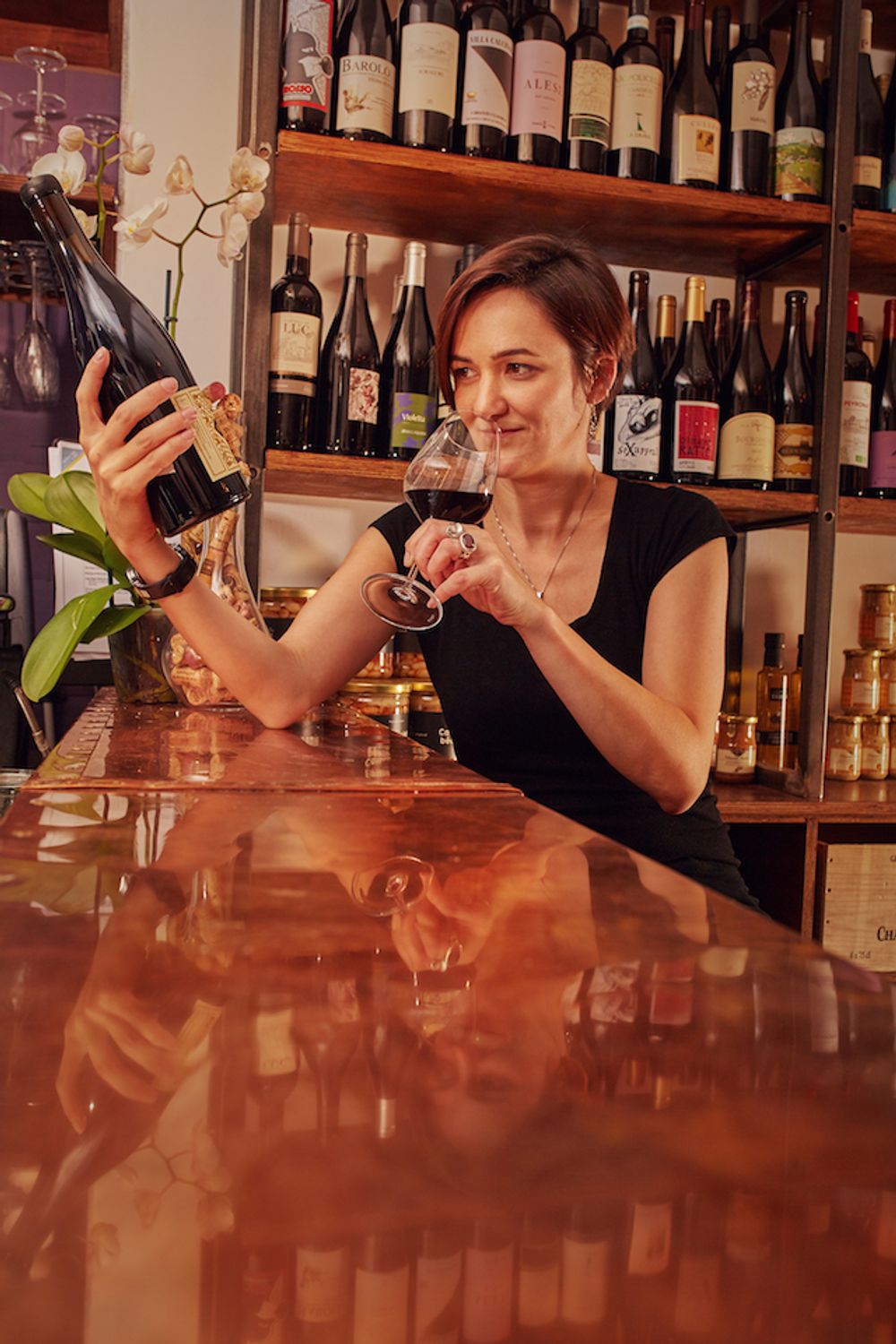
“Female winemakers are under-represented within the industry so they need a bit of support.” Carole Bryon, owner of Lady of the Grapes, Covent Garden, London
Do you believe that the wine industry is still predominantly a man’s world?
Yes, it is still a man’s world even if I think it is becoming better. More and more women are studying and working in the wine industry even if we are still a minority.
But clichés are hard to dissolve: when you go into a restaurant the wine list will always be given to the man for some reason; and in most of the wine estates, if a couple are working together, the name of the man will be put forward but rarely the name of the woman or both names. This is unfair as they work as hard and are as talented. So it is time to put this old world heritage away and to finally consider the work of women and give them a reward for it.
I want to represent them and ensure they are visible to the public. To speak about women in wine, and get media coverage, is already a big step – it lets people know that they exist and they make amazing wines! Female winemakers are under-represented within the industry so they need a bit of support.
How imbalanced do you think it is?
Very. For instance, less than 15% of the Master Sommeliers in the world are women, and the percentage is probably about the same in the vineyard. Hopefully there are more women in the UK working in the industry than in other countries, but the imbalance is still really visible.
It still happens when I am working on the floor to have some customer (male) ask me, “did you try the wine?”, “can I speak to the sommelier?” thinking a women has no wine knowledge and can only be a ‘little hand’ without qualification!
How do you measure the imbalance?
I can measure it by trying to find female winemakers from my importers. I work with more than 20 different wine importers and from their portfolios I feel lucky when I find four or five wines made by women, or vineyards owned by women. Then the choice narrows down even more as I select only organic wines, and obviously I also look for a certain quality standard.
Are there any particular areas of the industry more dominated by men do you think?
Hospitality in general. Female chefs are even rarer than female sommeliers I would say, but I guess many industries are unbalanced. And, even if there is better parity in terms of the numbers of workers, the numbers on the payslip are still unequal.
Is the industry as a whole getting more balanced do you think?
Yes, more women study and work in the wine industry, even though I still receive more CVs from men than CVs from women. I can see as well in my restaurant that women love and know about wine and we have a majority of female customers.
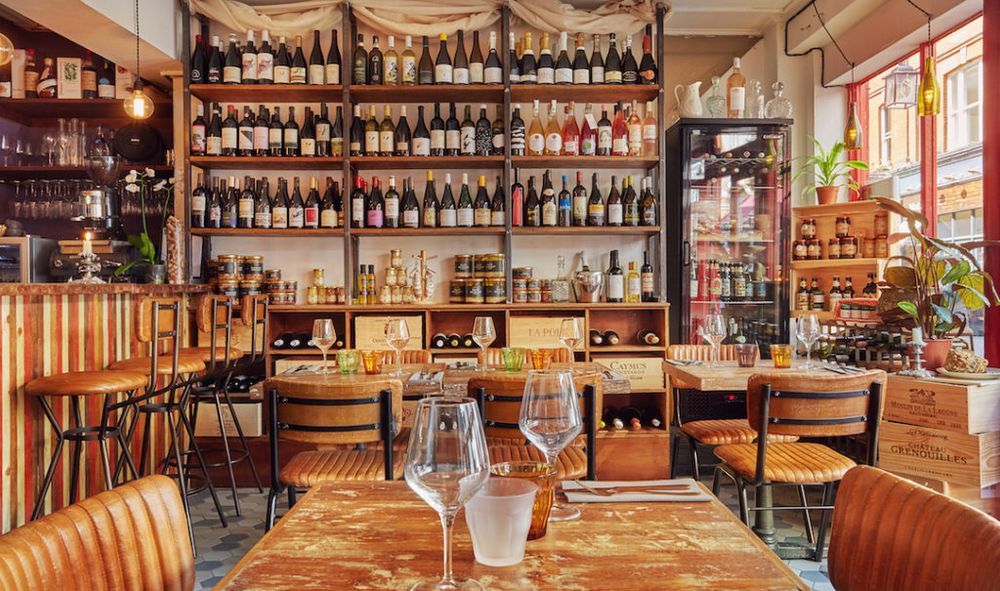
Your wine list is unusual in that over 50% are wines by women winemakers and all wines are organic, biodynamic or minimal intervention. Has that approach hindered or grown your customer base?
My wine list is composed of 70% wine made by women (or couples) and we definitely have a customer base based on that concept – they come, have a drink and they feel like they are helping women in the industry a little bit.
I also realised that a lot of people were sharing the same convictions and wanted/needed more places like Lady of the Grapes. Customers want to know what they are eating and drinking and where it comes from, they want a better quality product. By offering them organic, biodynamic or natural wine they can understand what’s in the bottle – no fertilizer, no chemical, low sulphites or no sulphites added.
Also most of our wines come from really small estates and we indicate the name of the winemakers on our list so the customer feels even closer to the producers.
If women are unfairly represented in the wine industry and your wine list is 70% made by women – does that mean you are missing out on some great wines?
We keep 30% of our wine list for men which allows us enough space to have the male producers we like. We just want to represent women more than men, we want to make them visible. We don’t choose wines simply because they are made by women, we chose them on quality criteria. And what we are after at Lady of the Grapes is quality wines and not big names.
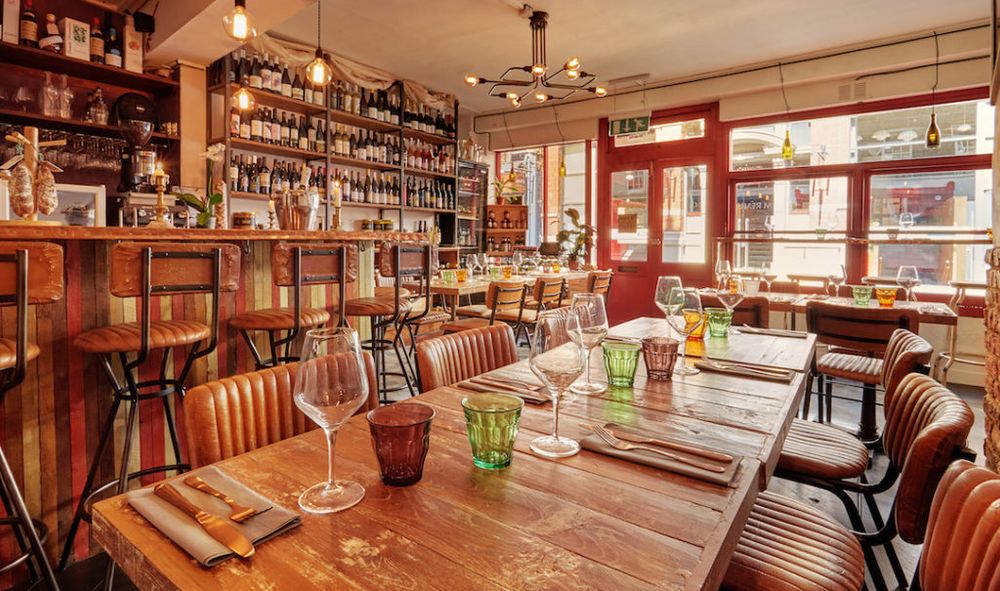
Do you think that you can tell whether a wine has been made by a man or woman?
Absolutely not! This is not the point at all.
Women make as good wine as men. My point is not to say they are doing better, I just want to make them visible as they are under-represented. I want to give female winemakers the reward they deserve by putting them forward.
Do you think calling wine ‘feminine’ or ‘masculine’ is helpful or not?
These are common expressions that people use to describe an elegant or big/bold wines, it is just metaphoric and if it helps customers to understand how a wine tastes then why not.
However, I don’t personally use these expressions I think there are other words to describe wines. But honestly, I don’t think it serves or disserves the feminist movement, it is just a gimmick.
What is your best selling wine made by a woman?
Probably a Cote du Rhône from Domaine Galévan, Puy Saint Martin made by Coralie Goumarre.
What is your best selling wine made by a man?
I would say Reyneke Cornerstone from Stellenbosch, South-Africa made by Johan Reyneke
Why do you believe that “complex and fascinating flavours are impossible to achieve using conventional winemaking methods”?
I think a wine stabilised by many chemical products doesn’t evolve or change and is ‘preserved’ but also loses in complexity. When you open a bottle of natural wine, you have a living wine in your glass which is evolving every minute. When I taste a wine, I want to feel the terroir not the work of an oenologist who has rectified the wines in every possible way. I love to compare conventional wines with pasteurised cheeses. Everybody agrees that unpasteurised cheeses have more flavour due to the living organism inside.
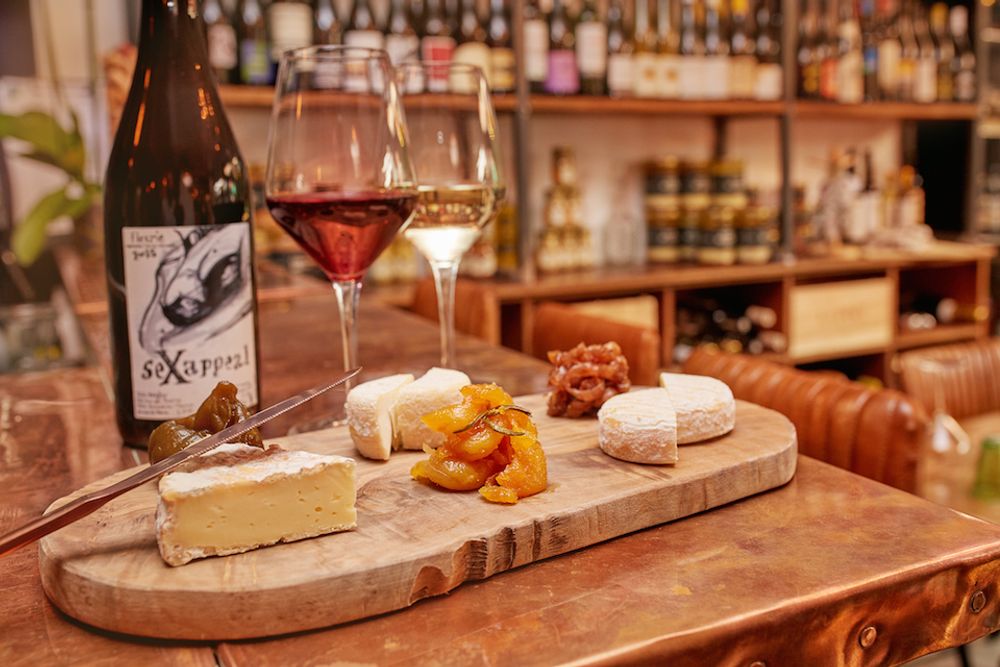
You recently tied in with International Women’s Day for a special wine event celebrating the social, economic, cultural and political achievements of women. What did you do exactly?
We invited Rebecca Palmer, wine buyer and associate director for Corney & Barrow, and two winemakers Vivien Ujvári (Barta Winery, Hungary) and Wendy Outhwaite (Ambriel Winery, Sussex), to share their stories and journeys of working in the wine industry. We obviously tasted Vivien and Wendy’s wines all paired with matching food.
How did you publicise it?
We advertised it on Eventbrite (online platform to sell tickets), we also communicated through our newsletter (which I advise everyone to register from our website to know about our next events and news), on our social media pages (Facebook, Twitter, Instagram) and our own website www.ladyofthegrapes.com/events
We also use PR consultant Vicky Major of Major PR who achieved pre-publicity on many drinks websites. Corney & Barrow also communicated about the event via their newsletter and social media platforms.
How successful was the event?
We were not fully booked but we had a lot of people attend. Everybody had a great time. We were really happy. It was a great event.
What was the tie-up with Corney & Barrow?
We have no special link with Corney & Barrow. They are one of the wine importers we work with and we love many of their wines. When our sales contact, Lorena De Andrade, who has supported our concept since the opening, suggested to me we do a joint event I thought that would be brilliant. So we worked on this event jointly.
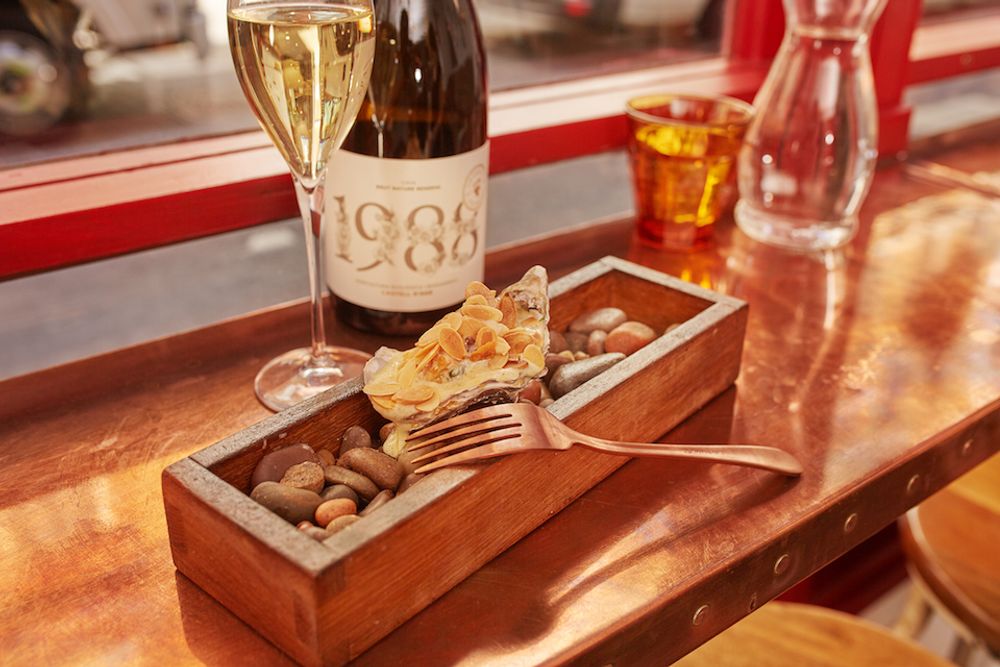
You recently ran a Crowd Funding campaign – what was that for exactly and how successful has it been?
We did the crowd funding campaign before we opened. It was more to advertise and attract customers than to make money. We gave crowdfunders the opportunity to pre-buy wines, drink, events… and then come to collect their reward as soon as we opened. But, unfortunately, it didn’t work as much as we hoped. But it was fun to do it.
What are your plans for Lady of the Grapes?
Probably to open another wine bar within the next one to two years…
Who are your wine heroes and why?
Sylvie Augereau who is an amazing winemaker and who helps to promote natural wines with the Dive Bouteille (wine fair in Loire, France) and who is a writer. She also does some work sometimes for the radio show ‘On va déguster’ on the French radio station France Inter. I never miss any episodes.
And obviously, the first and only French, female Master of Wine and organiser of Raw Wine, Isabelle Legeron, who helped promote natural wine worldwide. I think she really changed the industry by directing it towards a healthier and tastier route. And I totally recommend her books too.
What’s your favourite ‘man/woman walks into a bar’ joke?
Not exactly a joke, maybe a fact.
A man said that we are the best place to drink too much and have a meeting at 9am the day after. Because he had no hangover thanks to good quality wines.
I took it as a compliment.
